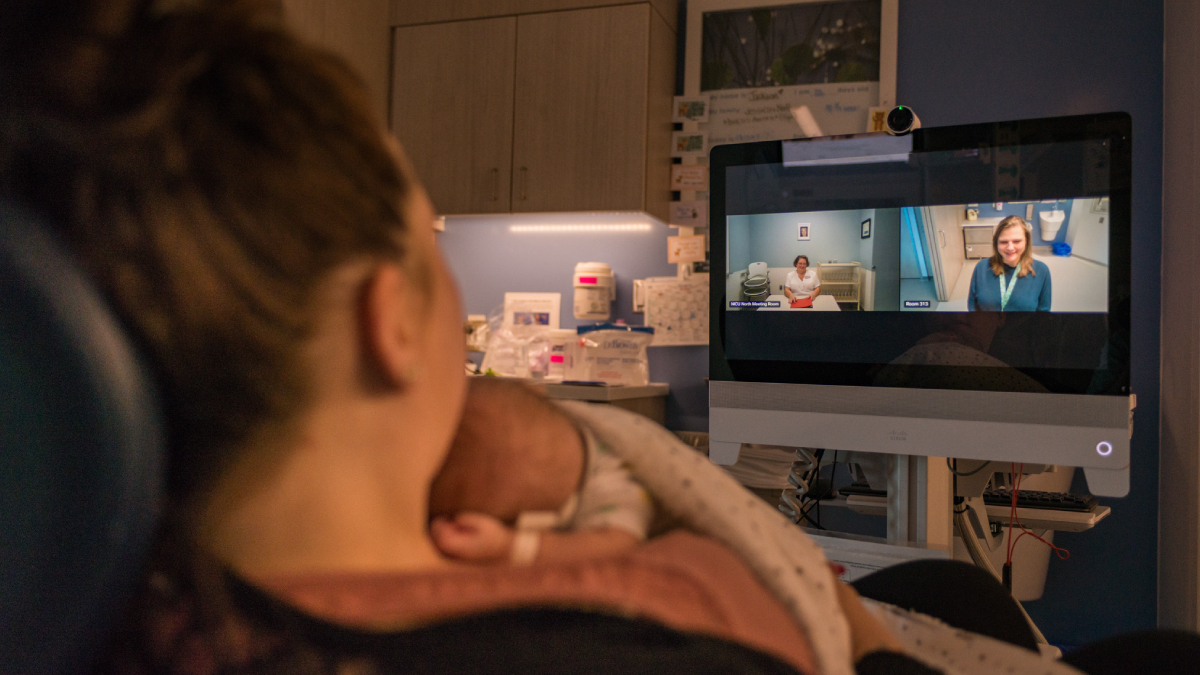- 94% of Indians surveyed are willing to store their health records in the cloud for easy access
- 88% surveyed in India are comfortable with interacting with their doctors virtually instead of meeting them in person
- 87% of consumers surveyed in India would trust technology to determine whether or not they need to see a doctor
- About 200 respondents from India were a part of this survey
India, April 3, 2013 – Cisco today released the Cisco Customer Experience Report focused on health care. The findings from the survey conducted globally indicated a growing shift in consumer's expectations on medical services in India. It also examined perceptions of consumers and health care decision makers (HCDMs) on patient experience in health care.
The report shows that as information, technology, bandwidth, and the integration of the network become the center of the "new world," both human and digital aspects are key parts to the overall patient experience. These components lead to more real-time, meaningful patient and doctor interaction.
The survey studied the views of consumers and HCDMs on sharing personal health data, participating in in-person medical consultation versus remote care and using technology to make recommendations on personal health. Views on these topics sometimes differed widely between the two groups (consumers and HCDMs) and the 10 geographies surveyed.
The global report conducted in early 2013, includes responses from 1,547 consumers and HCDMs globally, with a consistent sample size of around 200 local respondents in each of the 10 countries surveyed. Additionally, consumers and HCDMs were polled from a wide variety of backgrounds and ages within each country.
Privacy and Personal Service
This portion of the survey focused on how comfortable consumers and HCDMs are with sharing personal health and medical information for a better experience. Overall, health care practitioners were more willing to share personal and private information than patients or other citizens. The degree to which all clinicians, patients and citizens are willing to share personal health information and to improve the quality of care varies by geography.
Report findings – Indicative trends in India
- 94% of those surveyed in India are comfortable with storing their health records with a high degree of security in the cloud in order to enable them and their health care provider to access it easily. 86% of Indian consumers surveyed would be comfortable with submitting genetic information to a doctor or other health care professionals to ensure they have all information available to treat and offer the most personal diagnosis possible
- 75% of HCDMs surveyed in India believe data protection is adequate for protecting health/medical data privacy in their respective countries, while a lower percentage of the surveyed consumers (64%) believe data protection is adequate.
- Nearly half of all consumers surveyed and two-thirds of the HCDMs surveyed would be comfortable getting health information through social media channels. Compared to global consumers, Indian consumers expressed a greater than average comfort level in sharing and receiving health information through social media channels. In return, an even larger proportion of HCDMs feel comfortable providing health information to consumers via social media channels.
- In India, over 50% of the consumers surveyed would find it valuable if their health care provider presented appointment reminders, information for managing drug side effects and treatment reminders via social media.
- 62% of the Indian consumers surveyed expressed a willingness to share a range of information regarding their health as compared to 42% global response rate.
- In India 75% of HCDMs believe consumers would be willing to share a variety of health information via social media websites, while only 35% of Indian consumers indicated previously using social media to share information about their health with their doctors
- On a contradictory note, of the Indian consumers surveyed, almost 60% are ok with health care providers sharing personal data about their patients if it improves the quality of future care, however, only 45% of HCDM's believe that health care providers should be allowed to share patient information.
In-Person vs. Virtual Customer Service
The report findings challenged the assumption that face-to-face interaction is always the preferred health care experience. While consumers still depend heavily on in-person medical treatments, three- quarters of patients and citizens are comfortable with the use of technology for the clinician interaction.
Report findings – Indicative trends in India
- 75% of global consumers indicate they are comfortable with the idea of communicating with doctors using technology instead of seeing them in person.
- 88% of consumers surveyed in India indicated they would be comfortable with communicating about health care with their doctors using technology instead of seeing them in person. 76% of HCDMs also indicated they would be comfortable communicating with consumers using technology rather than in person.
- Respondents in India are significantly more willing than the rest to receiving health care remotely. Nearly 88% of consumers would be comfortable communicating with a specialist using virtual technology (e.g. video chatting, text messaging) for a health condition rather than visiting the specialist in person
- Additionally, more than 75% of consumers in the country would prefer to consult a specialist using virtual technology than to receive treatment in person from a less experienced professional.
- More than half of consumers in India indicate they can access upcoming health care appointments, lab reports, physician visit notes and prescription notes electronically
- 75% of consumers and HCDMs in India agree it would benefit a patient's care if healthcare professionals were able to monitor conditions using remote monitoring devices that send health information automatically
How Much Do Consumers and HCDMs Rely on Technology?
As machines become connected and networked, they play an even larger role in the overall health care experience. Interest in accessing health information on mobile devices is growing rapidly and is the No. 1 topic of consumer interest in India, Mexico, Brazil and China. Nearly 30% of those surveyed in India confirmed using health & fitness or medical apps on their mobile devices.
Report findings – Indicative trends in India
- At 85%, the proportion of Indian consumers who would trust a machine designed to help them perform everyday tasks such as planning and preparing meals is among the highest globally
- 87% of consumers in India would trust a machine designed to diagnose their overall health and provide a medical recommendation determining whether or not they needed to see a doctor
- Around 69% of Indian consumers surveyed tend to use the Internet for a variety of health care activities
Supporting Quotes:
Vishal Gupta, VP/general manager, Global Healthcare Solutions: "Virtual healthcare is no longer a myth and this report is an indication of how technology can potentially play a greater role in enabling access to virtual healthcare. The state of convergence between the physical and digital world has raised the expectations of consumers and at the same time expanded scope for healthcare providers to take their engagement further with more collaboration and information."
Rajendra Pratap Gupta, chairman, board of directors, Healthcare Information and Management Systems Society (HIMSS) Asia Pacific India Chapter: "Healthcare IT is a pre-requisite for equitable healthcare. Patients are perennially intimidated and bogged down by their healthcare experiences. However, the accelerated growth of smart devices backed by an intelligent network will soon render these issues non-existent. This report is an indicator towards how customers and patients will be more empowered in future, with easy access to information, enabling them to be more involved in the process.
Dr Chhavi Mehra, MD, Diplomate American Board of Internal Medicine, chief of quality at RxDx – a multispecialty hospital: "In a country where on an average, we have one doctor for 1700 citizens while the optimal average should be one doctor for 600 citizens, this report gives us great hope when we see that patients are comfortable about clinical interactions using technology or virtually, instead of in person. As machines become connected and networked, they can play a large role in the overall health care experience. This can help immensely to balance the doctor-citizen inequity we see in India as well as the urban-rural imbalance in terms of resource availability."
Supporting Resources:
RSS Feed for Cisco: http://newsroom.cisco.com/dlls/rss.html
Tags/keywords: Cisco, health, healthcare, video, telemedicine
About Cisco
Cisco (NASDAQ: CSCO) is the worldwide leader in IT that helps companies seize the opportunities of tomorrow by proving that amazing things can happen when you connect the previously unconnected. For ongoing news, please go to http://thenetwork.cisco.com.
# # #
Cisco and the Cisco logo are trademarks or registered trademarks of Cisco and/or its affiliates in the U.S. and other countries. A listing of Cisco's trademarks can be found at www.cisco.com/go/trademarks.Third-party trademarks mentioned are the property of their respective owners. The use of the word partner does not imply a partnership relationship between Cisco and any other company.





